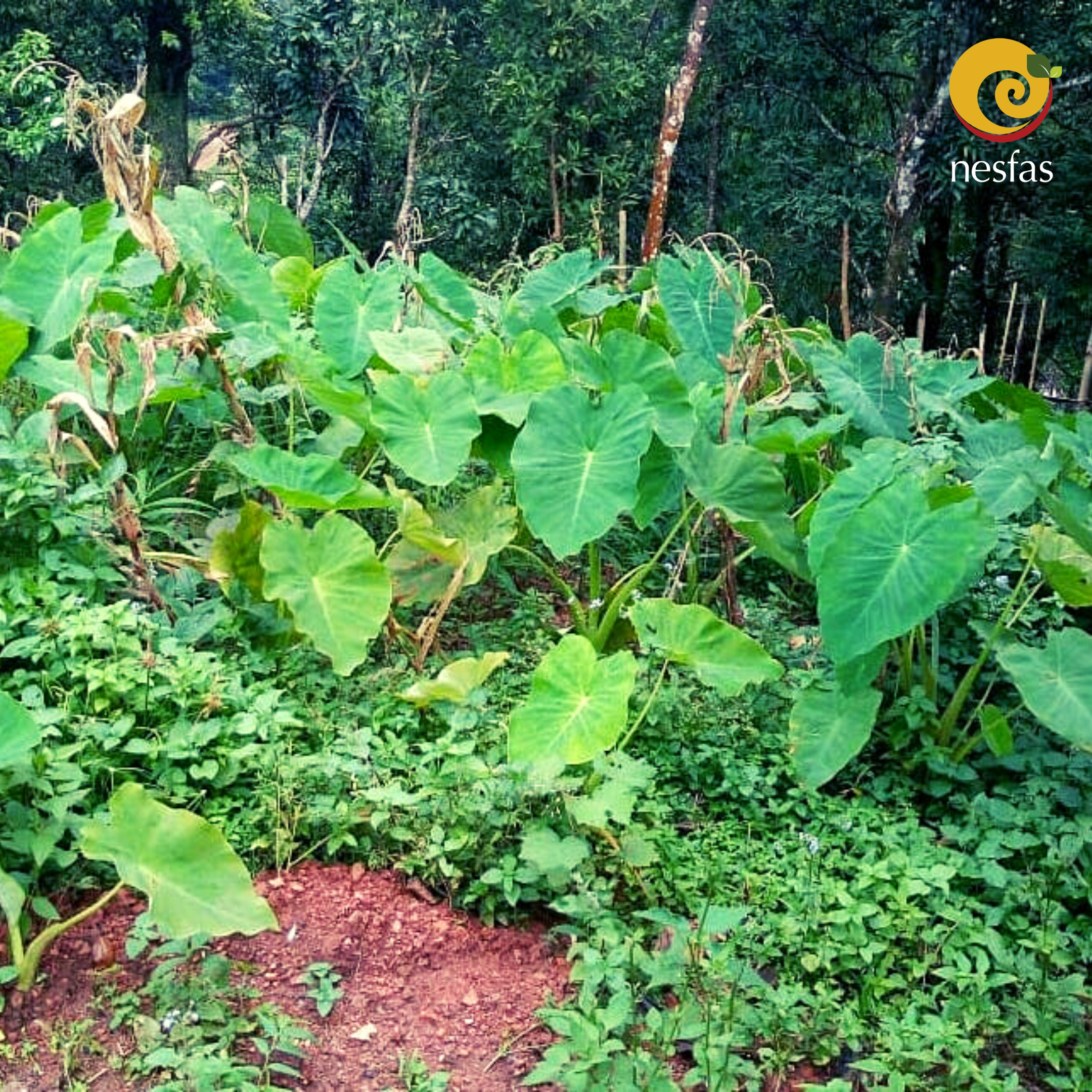Members of the Darechikgre community (West Garo Hills district) are known to have a self-reliant approach towards their food production and systems, i.e. they grow and eat their produce. Currently, there are three Participatory Guarantee Systems (PGS) farmer groups certified in organic farming and each group consists of seven-10 members from seven households. These farmers have taken the initiative to expand their kitchen gardens by increasing the number of food groups grown.
According to dietary reports by NESFAS and the Food and Agriculture Organisation (FAO), it is recommended that a person should consume at least five to six food groups out of a possible 10, for a good immunity. The 10 food groups include starchy staples, beans-peas, nuts-seed, dairy, meat, eggs, vitamin A-rich green leafy vegetables, other vitamin A-rich vegetables and fruits, other vegetables and other fruits.
The current COVID-19 pandemic has only emphasized the necessity to keep the traditional kitchen garden alive. Community members have realised that kitchen gardens strengthen their health and food systems. The farmers’ community there grows spinach, tomatoes, long beans, broad beans, radish, squash, chillis, pumpkins, bottle guards, citrus fruits in their farms and kitchen gardens for the nutritional values.
=NESFAS associate Chenxiang Marak, who is also working as a nutritionist, said, “A kitchen garden helps secure food and most importantly, it takes the edge off micronutrient deficiencies mostly seen among indigenous communities.”

The current COVID-19 pandemic has only emphasized the necessity to keep the traditional kitchen garden alive
The initiative to introduce more food groups in their kitchen gardens and to complement their usual diets came about with the acknowledgement that it helps develop stronger immunity. It also takes into consideration the movement restrictions in place and avoids the high-risks of visiting the local public markets. Rajesh B Marak, a community member, said, “COVID-19 is a situation which made us aware of crisis in terms of food and to be self sufficient starting from local seeds to production of local food crops, if food isn’t secure then health is not secure. It’s important to build our health through locally produced nutritious food and fight against the current health crisis.”
Usually, in Garo Hills, most of the community’s crops and varieties are grown during the monsoon season. Recently they’ve decided to segregate their farming crop rotation patterns into summer and winter crop production. Hendalson Sangma, another custodian farmer, said, “Kitchen gardens are an essential part of farming like shifting cultivation to overcome the shortage of food crops.”
“The crop rotation will ensure a year-round food security and an increase in food consumption. These kitchen gardens will always make sure that there is crop rotation and helps the soil for rejuvenation in terms of fertility”, another farmer added.
The community members have stepped up their efforts to adapt to the pandemic protocols and have strategized to believe that prevention is always better than cure in relation to the COVID-19 virus.
 Translate
Translate






